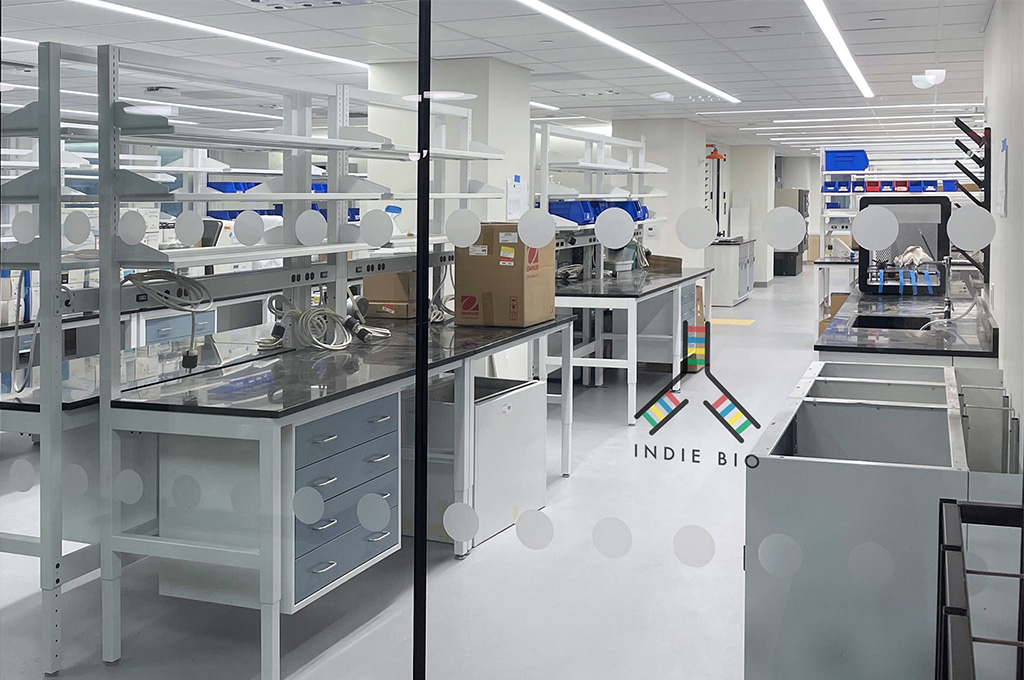
Chronus Health’s portable device allows for real-time diagnosis at the point-of-care providing lab results in minutes, dramatically improving time to care and patient outcomes. Our initial launch for Complete Blood Count (CBC) and Complete Metabolic Panel (CMP) accounts for 50% of all blood tests performed. We chatted with Anand Parikh, CEO of Chronus Health.
How did you get interested in medical diagnostics?
From very early on in my life I wanted to work at an intersection between engineering and medicine, and that’s why I chose biomedical engineering as my undergraduate degree and graduate studies and also as a career. After graduation, I worked with complex medical devices for 10 years in product development, operations, and regulatory pathway.
However, the specific blood testing diagnostic space was the idea and brainchild of my co-founder, Ashish Jagtiani, who had been exploring sensors focussed on diagnostics in grad school and then at IBM. We both talked at length during grad school on how we wanted to do something in the bioengineering space that would create an impact. So here we are trying to create an impact in medical diagnostics.
How did you guys decide to start a company doing this together?
Ashish was working on microfluidics and semiconductors at IBM when his sister, back in Mumbai, was diagnosed with acute lymphocytic leukemia, which is a type of cancer that affects the white blood cells. She spoke at length of how she would spend all day at the hospital, often waiting for blood tests, day after day. At IBM, Ashish was involved in the development of highly specialized lab on a chip devices. His sister asked him a question that’s still echoes in his heart today: “If you can do that, something so complex and amazing, why hasn’t anyone done that for simple every day blood panels?” This was one of the driving forces that that pushed him to leave IBM and start working on this.
Since we had always been talking about creating impact that would affect the lives of people, Ashish and I got together to push this forward. We did market research and found a huge gap in the market, which further drove us to form the company. Ashish, with this technical skills and with my medical device and business background felt like the perfect symbiosis.
What was the technological innovation, and what does this technology enable to actually happen now in clinics?
The prevalent techniques for doing blood test relies of optics and use of mechanical pumps for fluid preparation — this drives up both the size and cost of the devices. We use electrical methods for the sensing and sample preparation that allows use to reduce both the device size as well as the cost. Sensing, reagent storage and sample preparation are integrated onto the test strip — automating the sample preparation on the test strip allow us to extend this to multiple tests. The key technical innovation is in the engineering and integration of all components on to the disposable test strip.
By building a portable device that can give you results in a few minutes without the need for a technician, will allow the medical practitioners to get results during the same patient visit — improving patient care. Also, having a device on site — allows clinics to make revenue that they typically do not see currently.
What is a lab on a chip, what does this really mean? And once the product has done, how does that change things here?
Lab on a chip is literally what the words say — we are shrinking down the functionality of a lab using micro and nanofabrication techniques and putting it onto a chip. Lab on a chip and microfluidic field has been around for quite sometime, but the time now is right for disruption in hardware and medical devices space as you will see a convergence of technologies that are mature to allow this.
The interesting thing is that over a period of time, the focus in the lab on chip and microfluidics field has been one off tests, and now in next generation sequencing. No one is focussing on a complete comprehensive solution what the healthcare system needs.
If you look at the current blood analyzers, they’re bulky and expensive. Due to this, you draw blood at a clinic and then have to send the blood samples to a central lab, like a LabCorp or Quest. Even if it’s within the hospital facility is still has to go to a central location. A primary reason that these analyzer are bulky is because of how they are built — they use optics for measurements, pumps for moving liquids, reagent bottles for storage, this drives up both cost and size.
We envision a future that when you walk into any examination room and just as your doctor takes your basic vitals, like blood pressure, pulse oximeter, heart rate monitor, right next to it will be our device. The medical practitioner can get your blood test and the doctor can give you a treatment right in there in minutes.
So you guys have talked to a lot of doctors and hospitals and clinics. What’s the reaction that people are getting around this change in clinical care?
We have spoken to all segments from hospitals, ambulatory care, nursing homes, and clinics. We are seeing extreme excitement around the product. In fact, in just a couple of months we got four LOI’s from an endocrinologist, an urgent care chain, oncology chain, and even a healthcare system that services 2 million people. All of these healthcare systems they see Chronus Health as a partner because we’re able to address their need.
Our product will be CLIA waived. What this means is the healthcare systems don’t need to have a qualified lab technician to operate our device. The healthcare systems won’t also have to spend huge capital costs, annual maintenance costs, keep on buying reagent bottles. One of the fundamental aspects of any healthcare system, when they provide a service, they need to get reimbursed by insurance providers. In our case insurance codes, including for medicare, already exist for the CBC and CMP tests. So now a doctor can provide the treatment realtime, at a low cost while also actually getting proper reimbursements from the insurance codes to ensure that they see a profit.
In the long-term, what’s kind of the vision of how this changes this field of diagnosis?
We see a near future where the vast majority of patients no longer have to wait for results for the diagnosis and treatment to begin. Having these devices not only in clinics and hospitals but also in new segments, such as ambulances, will allow physicians to begin care the moment the patient arrives at the emergency room doors.
The ultimate holy grail is telemedicine. Having these devices in pharmacies, and even at home, will allow telemedicine to finally take off because so often telemedicine is useless without basic lab results. Currently, you jump on the call with a doctor and he goes over you vital signs. The next thing you are informed is to get a blood test done and more diagnosis which will take days. We see this changing soon.
What are some lessons learned transitioning from of large companies and work you were doing before into medical diagnostic entrepreneurship?
In the companies I worked in the past, there are lots of resources including cash you can tap into. In a startup, you are cash strapped and have to maximize the limited resources while hitting your milestones. Moreover, its a hardware company and not a software startup where you can have a handful of developers write a code, launch the product, and iterate as you move forward. We are building a medical diagnostic and we only have one shot to get it right. The accuracy of our tests can be second to none since clinicians are relying on them to make critical decisions.
It’s a balancing act of exactly where you want to put your money at the same time, what milestones you want to achieve so that you’re reaching your inflection points faster. This makes you come up with creative ways which you would have actually never thought of earlier.
What are the important milestones for Chronus as a company and coming up with the next couple of years?
In the next couple of years, the key milestone is to launch the product with FDA 510k CLIA waived approval. What works in our favor is that we can use one of the existing blood analyzers as predicate devices for CBC and CMP tests. We have to compare ourselves to a gold standard blood analyzer and show the comparable results. The key to success is working closely with clinicians and FDA.
Watch Chronus Health pitch on IndieBio Demo Day, Tuesday Nov. 6th in San Francisco or via LiveStream. Register here!



